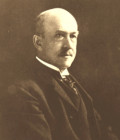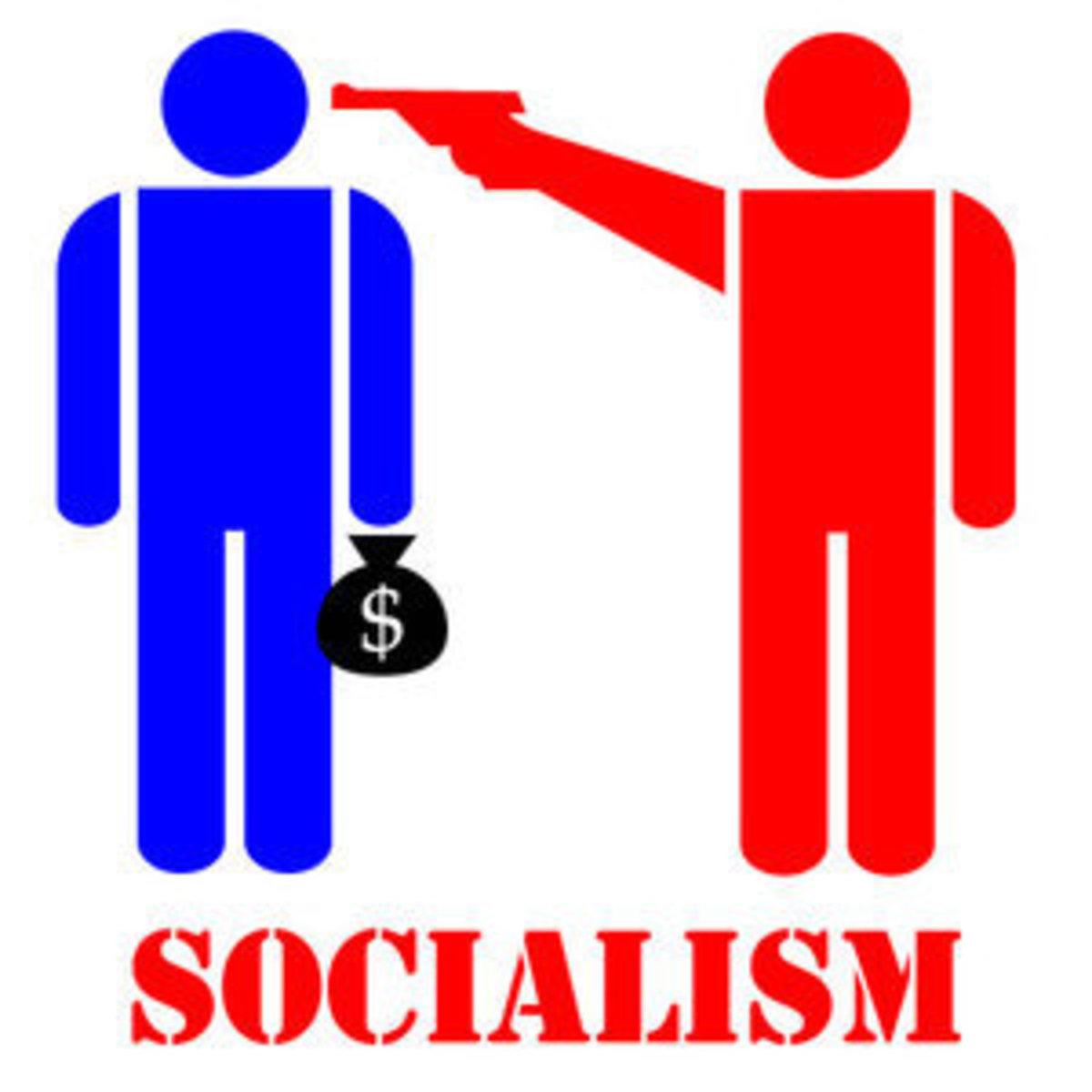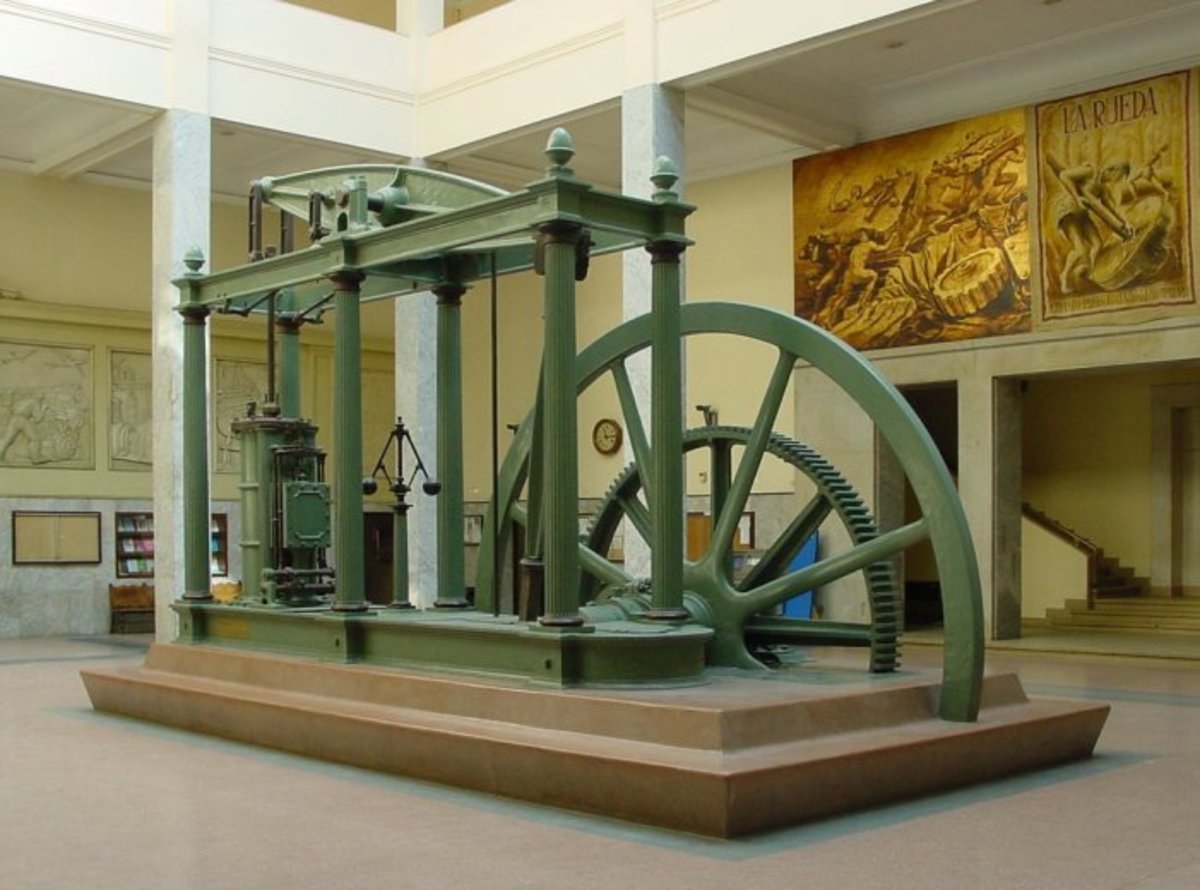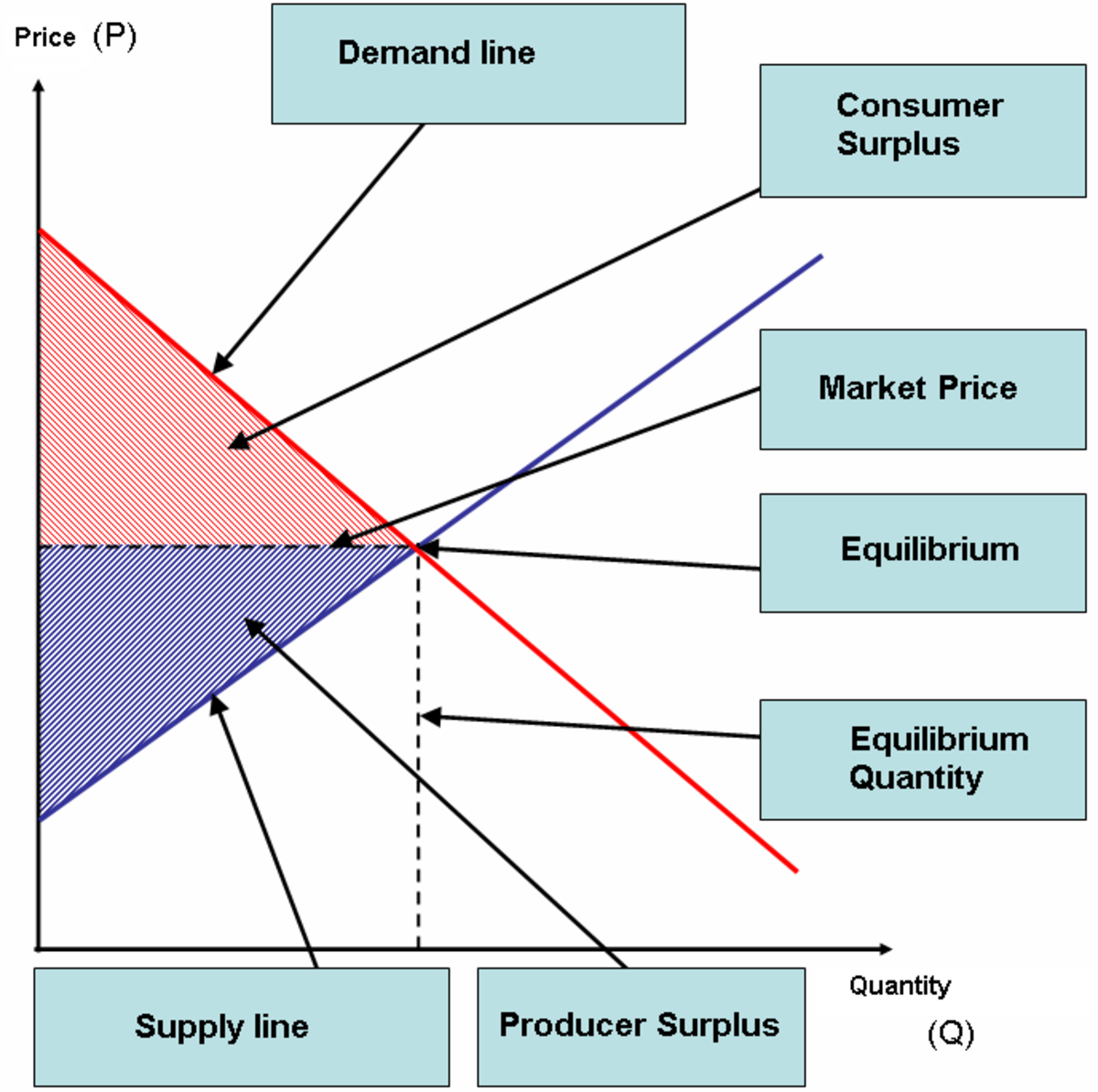The irreconcilable clashes between Marxism and Liberalism
Marxism and Liberalism, a brief comparison
The irreconcilable differences between Marxism and Liberalism
Between Marxism and Liberalism there are a number of similarities, but at the same time a number of irreconcilable differences. Both concern themselves with some form of social change, and indeed they can both agree on the harmful way in which the state affects us. In this sense, both ideologies hold that a great deal of social and societal change must come about to in order for us to reach our most beneficial state. However, whilst Liberals argue for an attempt to achieve a state that grants us the most freedom, Marxists argue that the state itself is the problem and that humanity will at some point grow tired of its oppressor and revolt to defeat the state, leaving the survivors better for it. During this essay I will attempt to devise an argument that will point out the flaws in the ideology of Liberalism and show how a Marxist would address these, primarily by arguing that the state is without fail an oppressor no matter how much freedom it claims to grant its citizens and that revolution is necessary to break us out of the illusion of Capitalism. I will however, upon completing this argument, attempt to demonstrate a Liberalist counter-rebuttal of the points given by Marxism, as the arguments given by it can be rejected. For the purposes of this essay when I refer to Marxism I will take that to mean classic Marxism, and I will take Liberalism to mean that offered by John Stuart Mill.
I will first of all introduce the Liberal standpoint. This ideology focuses on the freedom of the individual and the power which can be exerted over them for their own good. Mill himself wrote "The only freedom that deserves the name is that of doing our own good in our own way"[i] (Mill, 1985, p 14).This is regulated by the harm principle, which means in simple terms, you are free to do as you wish as long as you cause no harm to others. This is important as it allows individuals to live their lives in vastly different ways in harmony. This is what Mill refers to as "Experiments in living"[ii] (Mill, 1985, p120) which allow society to progress. By having a societal melting pot of ideas and lifestyles not only is the society itself multicultural and tolerant, but it is also in constant shift toward a better state of existence. By experimenting with various different lifestyles, we as a people could see those which were most beneficial to those who perform them. By discerning this "good life" all benefit as it allows them to critique both their own and others lifestyles in an environment in which they are aided by the conflict. This in turn pushes society as a whole forward as the benefits of each "experiment" can be taken and applied to the next, each more advantageous than the last. The Liberal state is cumulatively better for the whole as time goes on. The Liberal state itself consists of a representative democracy in which certain intellectual, expert individuals are voted for by the public at large, and these representatives then make the governmental decisions which affect everyone. The voting system itself places emphasis on intelligence and education, in that those who are deemed the most intelligent and mentally capable are given more votes than those who have undertaken less intellectual tests and ventures. This, Liberals argue, combines the freeing nature of democracy with the expertise of scholarly individuals who are the most capable of ruling. This is the sum of the liberal standpoint, which appears deeply convincing in so far as both standard of living and a state that provides freedom.
Marxism takes issue with a number of the points made by Liberalism, beginning with the Liberalist assertion of the individual. As Sayers writes, Marxism sees human beings as more social creatures, rather than one of many isolated cells[iii] (Sayers, 2007, p84). The evidence for this is simply that we live in groups out of necessity. There is no one human who could exist without another in seclusion, or if that were to be performed somehow against the odds, it would be a perversion of nature. The reason for competition is that society pits all its members against each other, in order to rob them of their collective might, resources and power. This is done so that the ruling class may remain in power that they have become accustomed to. By encouraging "experiments in living" the state divides the would be whole consensus of its citizens whom would otherwise be united in the sharing of resources and skills. This a Marxist argues, is tyrannical. The Marxist ideal is a state of pure cooperation, in that it is without class, without state and without property. The people exist only through working as part of a greater whole. Marx wrote "from each according to his ability, to each according to his needs"[iv] (Marx, 1970, p27) this sums up the Marxist viewpoint that to claim that humans are individuals is to segregate us as we are naturally social animals, that are naturally meant to peacefully coexist without conflict. Another facet of this is equality. All are equal in a Marxist's eyes. The Liberalist society however, is clearly elitist, as it holds some to be better and more capable than others and they are the ones who are the representatives in said representative society. The first criticism is that these representatives are in actual fact no representatives at all of society as what they represent is the wealthiest, privately educated upper class who do not resemble the proletariat whom they are supposedly trying to rule for. The interests of this bourgeois upper class have nothing in common with the more common people, so in what way are they to represent them? By disassociating themselves from the lower classes the representatives alienate themselves not only from their fellow humans but from what it means to be human as they are held up as the "elite" when in actual fact they are of the same worth as any other member of society. The second criticism is that to presume that some are better than others in democratic terms. This is a paradoxical claim, as the definition of democracy itself is a state of equality, a state in which all have equal say and their opinions are equally valid.
Along this theme of deformed democracy, Marxism also takes issue with the staggered voting system. The Liberals would stagger the worth of votes, based on who has the most intellect. Marxists would argue that the bourgeois hold the monopoly on the best education and the means to attain it. So, as mentioned above, the richest in society will have control over who stands to represent the people and those who will have the greatest say in having them elected. It is not just or indeed democratic to allow the control of a state based on an intellectual aristocracy. This demonstrates the need for a Marxist revolution, as it cannot be argued that this is democratic much less liberal as all the power is given to one group that being the so called intellectuals of a Liberal society. Hunt writes that this upper class will use all the systems within said Liberal society in order to keep hold of the power that they already have such as their elected representatives given power over the ordinary citizens[v](Hunt et al, 1980, p147). This shows the critique of a Liberal society by Marxism, and demonstrates the need for a Marxist revolution, as it is not problems with the state that can be rectified but the state itself is an issue. It cultivates an alienating culture that separates each of its citizens from one another by encouraging competition when without it there would be cooperation. It alienates its citizens from one another by cultivating an elitist class system. And it reinforces the divides it has created by granting some of its more "intelligent" citizens a larger say in what is supposed to be a completely fair process. It is with these arguments that a Marxist would convince a Liberal for the need of a revolution.
However, Liberals have a rebuttal. First of all, it is arguable that the individual is a creation of the state. One need only look to history to find famous individuals who weren't born in a Capitalist, elitist regime. These individuals, and they were individuals, show that that either they are freaks of nature who happened to be successful or, that we are as a species groups of individuals as opposed to just groups. Mill introduces the harm principle in order to protect the individual and allow them to do as they please. This is clearly a defence of freedom not an attempt to divide and conquer. This leads to the second point in a Liberal rebuttal of Marxism. Marxism presupposes that diversity is a creation of an oppressive state and a problem. This is arguably an intolerant attitude to minority opinion or action. Marxism clearly misunderstands diversity as negative. If a state brings together people of different creeds and colours into an environment in which they can coexist peacefully and still question one another's ideals and allow them to expand their thoughts it can in no way be considered tyrannical. It instead grants freedom which is the purpose of the Liberal state, and this empowers its citizens as exposes them to alternate viewpoints allowing them to expand their own. It does not, as Marxism argues dull our ability to empathize with one another, it instead enhances it as we come into contact with people who are radically different to ourselves. This shows that a Marxist revolution is not necessary in a Liberal state as it does not enhance the liberty or lives of the people who live within it.
In defence of the representational democracy, a Liberal would argue that to have the brightest and best command the government in the stead of the populace is merely common sense. When a house needs to be built, one consults with a builder, not a doctor. Similarly, when affairs of state must be dealt with, the average person would not have the wherewithal to do so. Whilst, as Marxists argue, the wealthiest have most access to the best education, that is not necessary to create someone able to handle governance. Nor does the fact that academics and intellectuals have more votes mean that they will dominate every election, or that they will unite and vote for someone wealthy rather than someone able to do the job. Also, academics are in the minority, meaning that whilst they have earned a greater portion of votes, it does not mean that they have earned the right to enforce their choice. The Liberal society emphasises the importance of the choice of the individual, showing the Marxist fears to be unfounded. Finally, that Marxists mean to abolish the state is absurd to a Liberal. Liberals believe that a state and its social systems are a natural by-product of humanity rather than a means by which to exploit it. Bentham writes "That which has no existence cannot be destroyed"[vi] (Bentham, 1843, p53) referring to social institution and that which humans have innately. To attempt a revolution in order to overthrow these institutions is a fallacy that is simply unachievable, as these things come from us as human beings rather than any physical construction.
In conclusion, I have demonstrated that whilst Marxism makes excellent points in favour of a revolution, a Liberal ought to be unconvinced by them. Whilst Marxism points out they way in which the state can exploit its citizens, it makes the mistake of presuming that diversity of populace and opinion creates weakness. In fact the opposite is true. The foundation of the Liberal society is unity through diversity which the Marxist doctrine does not account for. Marxism also points out the potential for manipulation of a representational democracy, but a Liberal can respond with the argument that it doesn't make sense to put everyone in charge of everything as it is not practical or possible. Due to this flaw in its reasoning, I have demonstrated that a Marxist can make an excellent argument for a revolution, but it will not convince a Liberal. This leaves both sides opposing one another in exactly the same manner in which they began showing that the differences between these two behemoth ideologies is irreconcilable.
Bibliography
[i] Stuart Mill, J. (1985) On Liberty. 4th ed. London: Penguin Books, p.14.
[ii] Stuart Mill, J. (1985) On Liberty. 4th ed. London: Penguin Books, p 120
[iii] Sayers, S. (2007) Individual and Society in Marx and Hegel: Beyond the communitarian critique of Liberalism. Canterbury: University of Kent, p.84.
[iv] Marx, K. (1970) Critique of the Gotha Program. 3rd ed. Moscow: Progress Publishers, p.27.
[v] Hunt, A. et al. (1980) Marxism and Democracy. 2nd ed. London: Lawrence and Wishart Ltd, p.147.
[vi] Bentham, J. (1843) Anarchical Fallacies; Being an examination of the declarations of rights during the French revolution. Edinburgh: Stevenson and Co., p.53.








